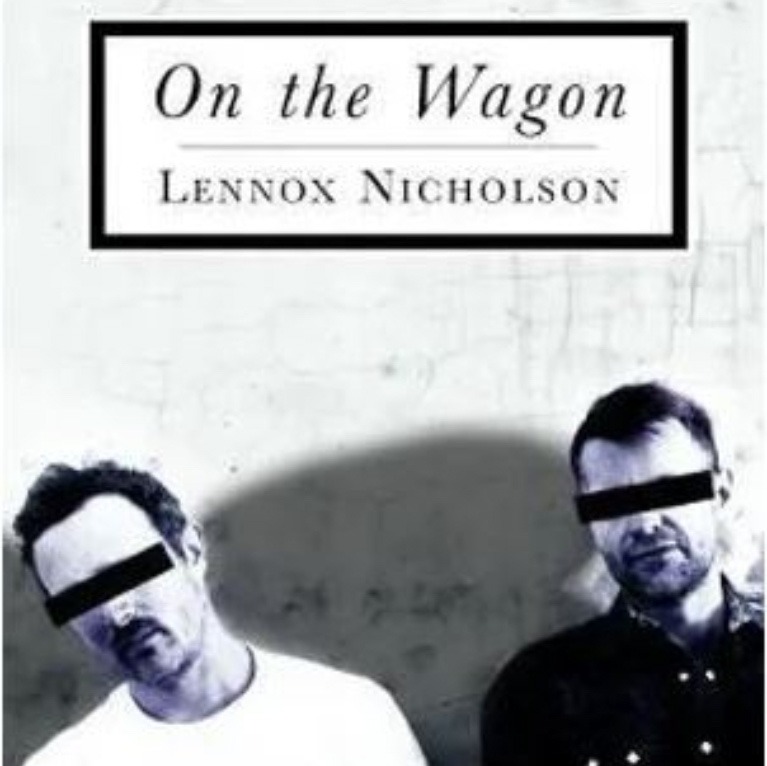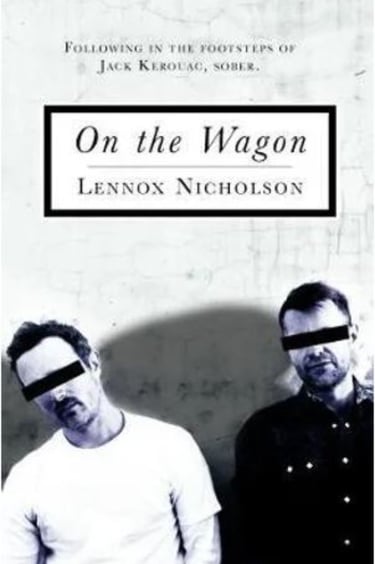
Writing in the Genre Known as Reality
I have been a working writer and a non-working writer. When I wasn’t working and had seemingly limitless time, I wrote fuck all.
GUESTS
Lennox Nicholson
8/26/20205 min read


By guest author Lennox Nicholson.
Lennox Nicholson is the author of On the Wagon (Affirm Press, 2017)
I have been a working writer and a non-working writer. When I wasn’t working and had seemingly limitless time, I wrote fuck all. That’s technical literary jargon for ‘not much’. I wrote far more of my first book when I had a full-time job than when I didn’t. Why? What is this devilry?
GET HONEST
I find I have to take complete responsibility and ownership of my writing time and make the necessary sacrifices to ensure the time is set aside. During this set-aside time, I write. If I don’t, it is my fault and my responsibility. By sacrifice I don’t mean knives, goats and pentagrams, I mean forgoing something of comfort or pleasure that will bring instant gratification (if that something for you is knives, goats and pentagrams, then I do mean those things—this time). If you want to write, don’t take the soma.
It is harder to go to bed at 9 p.m., wake at 5 a.m., write for an hour and then get on with the responsibilities of the day than it is to stay up watching Netflix until midnight, press snooze and blame a job for my lack of time to write, lamenting that if only I had more time I would write more. No, I wouldn’t, I’d just waste more time. I know because I’ve had periods where I had tons of free time, so I went on 100km bike rides and downloaded updates of old Sid Meier games for the Mac and burned it. If I had eight hours to chop down a tree, I’d spend six hours sharpening my axe, and another hour looking up clever quotes on the internet. Get honest.
TWO JOBS
Being a working writer means having two jobs. I have two jobs. Writing what I’m interested in is my second job and doesn’t pay that well, yet. I would like it to be my pay cheque job, an achievable goal, though currently it isn’t. This condition is known as ‘reality’. Nourish your hopes, but do not overlook realities. And always steal quotes without attributing them.
My pay cheque job, the one that does pay pretty well, is as a tender writer for a private company. I’m not always interested in what I’m writing for this company, but they are so grateful that I show up and do it, they regularly put money in my back account, above and beyond the amount required for basic food and shelter. It is a wordy job and requires reading, research, editing, rewrites and the occasional bit of inspired writing. It also provides day-to-day structure for weeks at a time, something I am notoriously poor at putting into place if left to my own devices.
Jobs are great for writers. If you’re a starving artist, consider moving, or admitting that you rent in the inner city ‘cos you’re out on the sauce every other night in a desperate attempt to fill some void in your soul. Then either move or get a job.A modern writer doesn’t need to be a rebellious aristocrat penning in their idle time in the opulence of an estate, nor a stifled creative spending their life behind a mule and plough, too exhausted to write after sundown. If you live in Australia and can’t manage to fit writing around paying your way, something is drastically wrong with your picture.
CREATIVITY
Let’s put this one to bed now. The initial idea is creative. The rewriting of vast tracts after getting it back from the editor is creative. Changing a word here or there while skimming over a draft is creative. The rest is work. If you’re writing because you seek some unbridled, cathartic creative outlet…maybe try blindfolded finger painting or have a crack at a sand mandala in the nude and wash it away when you’re done.
With writing, creativity is the tip of the iceberg, the part everyone wants to acknowledge while desperately ignoring the unforgiving leviathan lurking beneath the surface that is hour upon hour of work, straight up. Doesn’t mean you can’t like it, but it does mean you will have to do it when you’re not liking it.
THE REALITY
Yep, they just keep coming. They are part of being an adult. I rented in Melbourne when I wrote On the Wagon and I can assure you, it cost money. So I worked. But I’d rather have shelter, food in the fridge, and clean running water than be evicted, living on the streets and cuddling a typewriter to sleep at the end of an alley while a large, tombstone-toothed transient is cuddling me. Call me strange. It’s also difficult to write outside of daylight hours…with no lights.
STRUCTURE
Ever heard that one where you ‘write for an hour a day at the same time of day, every day’? That doesn’t work for me. I’m crap at it. I don’t really like doing anything for the same amount of time at the same time every day except be asleep. I’m a recovered alcoholic so I go to regular meetings. I’m type 1 diabetic and need to exercise and eat properly, which means shop properly, so I do these things. This means holing up in a cardboard box eating dry two minute noodles and not talking to anyone except the voices doesn’t work for me.
When I was writing On the Wagon, I set aside regular blocks of time that were realistic and achievable for me – not anyone else. For example, I set aside Monday night after 6pm. That was a ‘write night’. It was regular and as long as it needed to be. I’d eat out and do as much as I could on the laptop. I never had to ‘feel like it’ or ‘wait for inspiration’ or any of that trite garbage. I just showed up, which is 80% of success (the other 20% is using other people’s quotes without attributing).
I would then schedule in another ‘write night’ later in that week, whenever I could. Friday and Saturday nights were always fair game. It’s a second job. Treat it like one. Tell your other half you have to work that night so sorry, but you will have to [insert soma] next time. If you don’t show up for work, fire yourself and stick to reading what other people produce by having the guts to stick at the low paying second job.
FEAR
This was my greatest companion when I wrote my first book, and it still is now. It’s the evil, corroding thread that weaves its way into my thinking every day. Get used to it and write in spite of it because in all likelihood, it ain’t going away. So starve it. Feed the writing instead. ‘Nurturing’ is great for toddlers and unicorns, but this is about survival as a writer. Starve the fear. Feed the writing. Rather than re-read the same paragraph just to tell yourself it’s rubbish, write the next one. Other people will let you know what’s rubbish and what’s not. It’s called ‘accepting an honest, constructive critique by an experienced and qualified editor’ and you only get that privilege after you give them whatever it is you have been working on during your second job. After all, amateurs sit and wait for inspiration, the rest of us just get up and go to work…
The business of being a writer
The business of being an author
Planning your writing career


On the Wagon is out now.

© 2026. All rights reserved
In the spirit of reconciliation, we acknowledge the Traditional Custodians of Country throughout Australia and the Torres Straight Islands and their connections to land, sea, and community. We pay our respects to elders past and present and extend that respect to all First Nations and Torres Strait Islander peoples today.
ABN: 19 569 432 238





